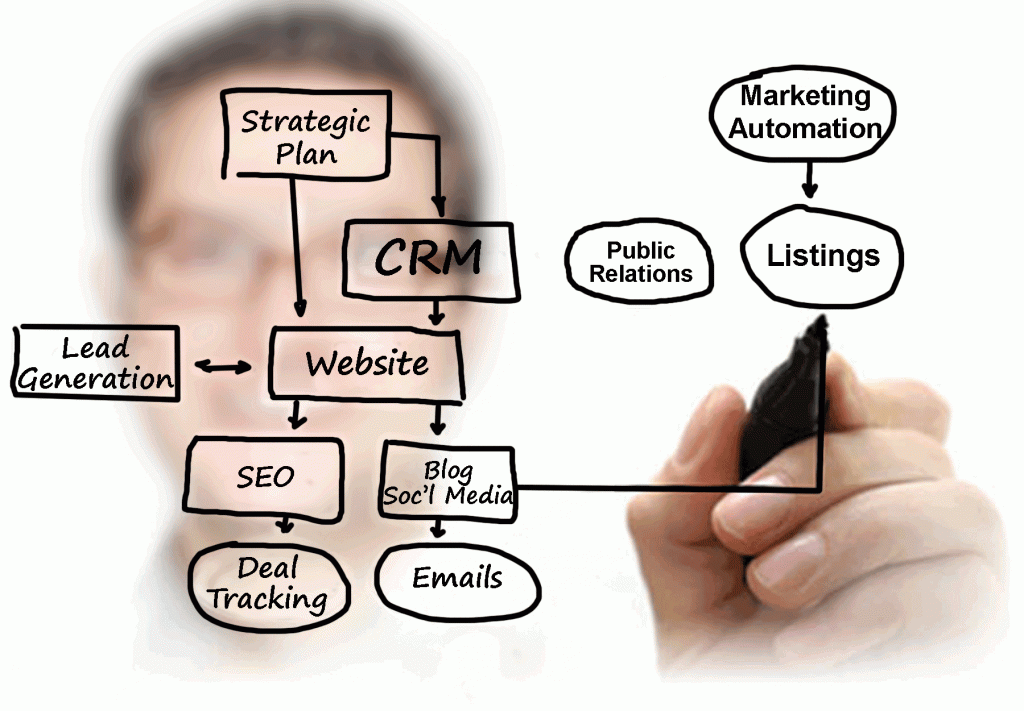
When corporate executives toned to increase growth and efficiency within their sales and marketing community, Customer Relationship Management (CRM) technologies often become a target for improvement or replacement. In the haste of meeting revenue forecasts and managing a slue if other large scale projects congruently, sales management executives will often overlook the most important and often most neglected part making CRM a raving success: creating a clearly defined CRM strategy and roadmap!
CRM as a technology can be as basic as a contact “phone book” with nothing more than notes, or a fully embedded and trusted multi-million dollar platform integrated into every aspect of the ERP ecosystem. Leadership often overlooks the alignment of best practices during the evaluation phase and many times just assigns the desired “look and feel” that is requested or required. However, there should be ample effort placed on the operational steps that will encourage users adopt the system and make the technology a true center-section of data and activity.
A great way to ensure you have chosen the most effective best practices is to draft a strategy and roadmap for your implementation beforehand to help guide you through the inevitable bumps in the road – and there will be bumps if you are doing it right!
Before diving into a CRM technology decision, first take a step back and follow these guiding rules to help you along the way:
- Assign a team of people that will help you manage the process. This is important so you can properly configure, test/pilot, and manage the process of picking a CRM system with a diverse audience of potential users. Sales, marketing and executive leadership should all be part of the decision. It never hurts to have a leading sales or customer service user in the room. Pick someone who of a middle ground with respect to technology knowledge, so you have a chance to see how the average user may fair.
- Understand what your true sales and marketing strategy is and where you want it to end up. Is this a good time to evaluate your sales process and create a shorter series of steps to get an opportunity? Is it a good time to create a common-operating-language so users won’t have to learn a new vocabulary or be forced to use an old one?
- Create an internal roadmap and a timeline. When you will have to get the budget approved, when the system needs to be live, (i.e. red button day), who is the final decision maker in the process, and why that person has been elected to have the buck stop with them.
- Understand what best practices the systems you are evaluating have to offer. Try and isolate them during the technology review meetings or demonstrations. What best practices will you use today that will need to be “configured” into the system? Everything from processes, data, systems, and user experiences should be taken into account. Try and understand what’s working and not working today, and what you can use out of the box and what you will have to customize within the system.
- Consider hiring a consulting firm for guiding you prior to the path of purchase. So many times experienced firms are brought in AFTER the choice has been made to configure the system. What’s wrong with getting good experienced advice on the CHOICE of the system? Expert advice- before the decision has been made- can help ensure the system will provide you with what you really need- at the best value within the fastest implementation time-frame.
- Create a set of policies or objectives that will define the difference between success and failure. If you can determine them before hand, you can then hold the system to financial or engagement based results. (i.e. “We are 45 days away from Salesforce.com giving us a full 100% ROI! Go team!”)
Alexander Graham Bell once said “Before anything else, preparation is the key to success.” I believe that creating a solid plan that is agreed upon by all is the best way to can ensure that you’ve planned for risks and can understand when you’ve reached your goals for your CRM project.




